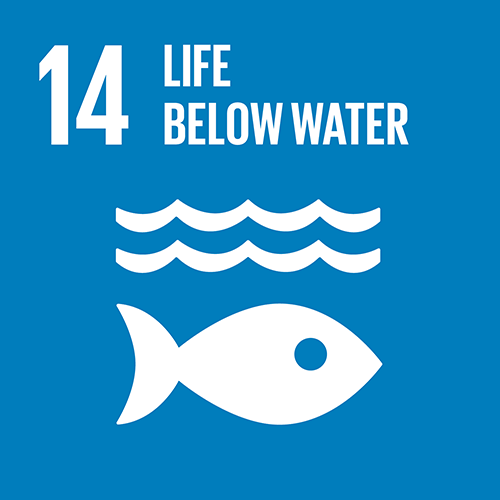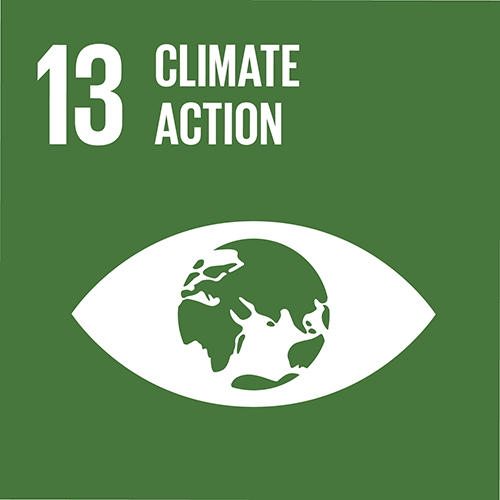gestion maritime
Corporate Social Responsibility
Environmental, Social & Governance
csr / esg
Protection
of the SEAS
As the United Nations agency responsible for developing and adopting measures to improve the safety and security of international shipping and to prevent pollution from ships, and for the prevention of pollution by dumping of waste at sea, the IMO has an integral role in meeting the targets set out in the United Nations Sustainable Development Goal (SDG) 14: Conserve and sustainably use the oceans, seas and marine resources for sustainable development.


IMO’s work is also linked to many other SDGs too, for example SDG 13 on climate action, since the oceans are impacted by increasing carbon dioxide (CO2) and other greenhouse gas emissions (GHG) from human activities, but also SDGs 6 and 9, aiming at a sustainable society, with infrastructure, transportation and waste management that can support societies now and into the future.
Over the years, the IMO has developed and adopted mandatory rules, as well as recommendations and guidelines, to protect the marine environment from any potential negative impact from shipping activities.
One of the key conventions protecting the oceans is the International Convention for the Prevention of Pollution from Ships (MARPOL). MARPOL was first adopted in 1973 with annexes covering the prevention of pollution from ships by oil, by chemicals carried in bulk, by packaged goods, by sewage and garbage from ships.
The convention was expanded in 1997 to regulate air pollution and emissions from ships.
Other IMO treaties cover oil pollution preparedness, response and co-operation, control of harmful anti-fouling systems on ships, prevention of the potentially devastating effects of the spread of invasive harmful aquatic organisms carried by ships’ ballast water, and safe and environmentally sound recycling of ships, to name just a few.
Much as the oceans are linked to coastal and on-land activities, the IMO’s work to protect our oceans extends to regulation and prevention of pollution from dumping of waste at sea, including climate change mitigation options such as carbon capture and storage.
These initiatives are executed through the London Convention and Protocol treaties.
“The IMO recognizes the need for special protection in some areas due to ecological, socio-economic or scientific significance. Special areas and particularly sensitive sea areas (PSSA) are designated to ensure higher levels of protection from shipping activities.”
Coordination and collaboration is key in all ocean matters. IMO is the secretariat for the Joint Group of Experts on the Scientific Aspects of Marine Environmental Protection (GESAMP), which is an inter-agency mechanism providing independent scientific advice to its ten sponsoring UN organizations.
IMO is also playing an active role in other environmental cooperation mechanisms in the UN, such as UN-Oceans and the UN Environment Management Group (UN EMG).
Recently, IMO has been enhancing its work on climate change mitigation and reduction of emissions from ships, which will contribute to reducing ocean acidification.
IMO is also working to reduce marine plastic litter and to mitigate against invasive aquatic species. IMO also works to protect marine mammals from ship strikes and reduce underwater noise from ships.
Gestion Maritime Group is fully engaged to comply with all IMO goals and guidelines and to voluntary minimize any negative impact potentially arising our of operating its vessels through the oceans.
csr / esg
Energy
Gestion Maritime Group is ISO 50001 Certified. The standard specifies the requirements for establishing, implementing, maintaining and improving an energy management system, whose purpose is to enable an organization to follow a systematic approach in achieving continual improvement of energy performance, including energy efficiency, energy security, energy use and consumption

The standard aims to help organizations continually reduce their energy use, and therefore their energy costs and their greenhouse gas emissions.
ISO 50001 was originally released by ISO in June 2011 and is suitable for any organization, whatever its size, sector or geographical location. The second edition, ISO 50001:2018 was released in August 2018.
The system is modelled after the ISO 9001 Quality Management System and the ISO 14001 Environmental Management System (EMS) and the 2018 version has clauses modular with both.
A significant feature in ISO 50001 is the requirement to “… improve the EnMS and the resulting energy performance” (clause 4.2.1 c).
The other standards mentioned here (ISO 9001 & ISO 14001) both require improvement to the effectiveness of the Management System but not to the quality of the product/service (ISO 9001) or to environmental performance (ISO 14001).
It is anticipated that by implementing ISO 9001 and 14001 together an organization would improve quality and environmental performance, but the standards do not currently specify this as a requirement.
ISO 50001, therefore, has made a major leap forward in ‘raising the bar’ by requiring an organization to demonstrate that they have improved their energy performance.
There are no quantitative targets specified – an organization chooses its own then creates an action plan to reach the targets. With this structured approach, an organization is more likely to see some tangible financial benefits
To pursue a proper measuring, monitoring and management of energy consumption, we have installed dedicated internal software that collects live data originating from telemetry. This software connects vessels with our central elaboration unit.
csr / esg
Environment
Gestion Maritime Group approach to Environmental considerations conceptually departs from Milton Friedman’s (1962) argument that there is only one responsibility of business, namely to use resources and engage in activities that increase profits.
We are fully aware that CSR may impose short term costs on stakeholders due to increased investment in CSR compliant activities, but we believe that full engagement with supranational organizations to help develop policy in line with commercial practicality optimizes this balance.
Several of our board members have joined such initiatives with this in mind, and we firmly believe that ethical awareness and profitability can no longer be separated.
Corporate ESG considerations are not only an ethical call, they are a potential profit center for the company. This is because in the coming years personnel skill upgrades will position us well in the face of changing industry requirements.
As a firm, we aim to outperform emission reduction targets and deadlines submitted by international bodies, with the long run target being an internal fleet of zero carbon emitting vessels.
We believe that meaningfully expanding the supply of intermediate fuel solutions would only serve to delay the achievement of a zero-carbon future. In practical terms, we have been working with multiple industry stakeholders to identify existing technologies that can help us achieve our outperformance goals.
An ongoing, in-depth costs-benefits analysis of the different zero-carbon solutions available today is now an entrenched part of our business model.
Currently, we are working on 3 main areas
of vessel environmental improvement :
Slow Steaming
We have been promoting the need to slow steam the fleet as one immediate and material solution to cut CO2 emission for many years.
According to a recent study, a fleet speed reduction of just 1.5 Knot equates to a reduction of approximately 15%-18% in CO2 Emissions.
Energy Saving Devices
Our main area of interest expands also to combined and integrated solutions aimed at better managing main engine power picks, replacing aux generators with renewable energy, together with different systems of hydrodynamic friction reduction and propulsion enhancement.
New Fuels Engines
New fuels such as Hydrogen, Ammonia and Bio Fuels, processed using renewable energy and burnt by LGI engines is our main area of investigation.
Marine Regulatory Policies
Covering Air Pollution & CHG Emissions
November 2020
| Pollutant | Policy | Date Applicable | Coverage | Details | Regulator |
|---|---|---|---|---|---|
| GHGs - CO2, methane, black carbon, … | Energy efficiency Design Index (EEDI) | Enforced in 2013, applicable in phases for newbuilding; 2015, 2020, 2025, … | Global | Requires minimum energy efficiency per work done for newbuild vessels, with % improvements in performance against a baseline for any given vessel type, measured at 75% engine load. Phase 1 in 2015 required a 10% improvement, Phase 2, 2020 requires a 20%, phase 3 in 2025, 30%... | IMO |
| GHGs - CO2, methane, black carbon, … | Ship Energy Efficiency Management Plan (SEEMP) | Adopted in 2016 | Global | Monitors ship performance of trading fleet. Mandates collection and submission of revelant data by shipowners/operators and provides mechanisms for improving operational efficiency | IMO |
| GHGs - CO2, methane, black carbon, … | IMO GHG Roadmap | Adopted in 2018 | Global | Reduce absolute GHG emissions from shipping by at least 50%, compared with 2008 levels, by 2050. Goal based approach to reduce CO2 emissions per unit of work done by 40% by 2030 and 70% by 2050 | IMO |
| GHGs - CO2, methane, black carbon, … | Monitoring, Reporting and Verification (MRV) of CO2 Emissions | Enforced in 2018 | Ships calling @ EU ports | Shipowners/operators must report amount & emission factor for each type of fuel consumed in total. Total CO2 emitted and additionally differentiated to aggregate CO2 emitted for voyages to and from EU ports, including inport consumption, a measure of total transport work - Time at sea and in port + Cargo carried and average energy efficiency | European Commission |
| GHGs - CO2, methane, black carbon, … | Data Collection System (DCS) for Fuel Oil Consumption | Enforced in 2019 | Global | Simplified version of MRV but global but with total DWT as cargo proxy and individual ship data will be kept confidential | IMO |
| GHGs - CO2, methane, black carbon, … | EU Emission Trading Scheme | 2022 (Expected) | Ships calling @ EU ports | Submission to include shipping in the EU emissions trading scheme as part of the Green Deal. Not concluded yet. Depends partly on progression of IMO regulations | European Commission |
| GHGs - CO2, methane, black carbon, … | Energy Efficiency for Existing Ships Index | 2023 (Expected) | Global | The IMO has mandated the EEXI/CII at the next MEPC in 2021, along with amendments to the SEEMP. The intention is that something similar to EEDI Phase 2 (above) will apply to the entire trading fleet of pre EEDI phase 2 vessels. This would be achieved by energy saving devices and/or power limiters and will bring all vessels into line with a 2020 equivalent newbuilding | IMO |
| Sulphur Oxide | Global Sulphur Cap | January 2020 | Global | Limits sulphur content of marine fuels to 0.5%, for vessels trading outside of ECAs (below). A vessel may use a scrubber to reduce sulphur oxide emissions from main / auxiliary machinery and thus continue to burn fuels with higher sulphur content of up to 3.5% | IMO |
| Nitrus / Sulphur Oxide | Emission Control Areas (ECAs) | Enforced from 2005 with further tiers in 2006, 2012 & 2014 | Baltic, North Sea, Caribbean Sea and North American waters | To operate in ECAs, ships must comply with stricter rules for Sox and Nox emissions. Sox is limited to 0.1% in ECAs. Nox is limited to Tier II standards from 2012 in all ECAs and Tier III standards from 2015 in the US ECA. Tier III standards are only achievable through addition of EGR or SCR to main/auxiliary engines | IMO |
csr / esg
Diversity & Inclusion
Diversity and Inclusion in the workforce is essential to ensure companies remain competitive in the face of changing and diverse customer needs. Adopting best practices on this area enables companies to leverage a wide range of perspectives and experiences in day to day decision-making processes and in serving different stakeholder groups.
At Gestion Maritime Group, we embrace this concept at every level and is at the core ESG focus.
COVID-19 has highlighted why diversity is critical for business recovery and resilience. As our group looks to adapt to a new way of conducting business post-COVID-19, diversity and inclusion factors will be at the center of our agenda alongside financial resilience, environmental risks and workforce health and wellbeing.
Investors monitor and evaluate the relationship between diversity and recovery, referencing the 2020 global pandemic
Customers are adjusting consumption patterns and purchasing decisions, looking for more sustainable and socially sensitive products
Employees are increasingly looking to work for companies who’s values embody ESG principles

Cultural Diversity
The term “culturally diverse” is often used interchangeably with the concept of “multiculturalism.”
Multiculturalism is defined as:
“…a system of beliefs and behaviors that recognizes and respects the presence of all diverse groups in an organization or society, acknowledges and values their socio-cultural differences, and encourages and enables their continued contribution within an inclusive cultural context which empowers all within the organization or society.”
Accomplishment of multiculturalism
Recognition of the abundant diversity of cultures
Respect for the differences
Valuing what other cultures offer
Acknowledging the validity of different cultural expressions and contributions
Empowering people to strengthen themselves and others to achieve their maximum potential by being critical of their own biases
Celebrating rather than just tolerating the differences in order to bring about unity through diversity
Gender Diversity
Inclusion
Flexible working not only enables employees to experience and or obtain a more effective work life balance, but during the Covid pandemic, it has proven to be essential for companies’ survival.
The number of companies with an official flexible working policy has increased by 90% over the last five years.
Gestion Maritime SAM
Operations
7, Rue du Gabian,
Fontvieille,
Gildo Pastor Center,
5th Floor, Bloc A
98000 Monaco
© Gestion Maritime 2022 – All rights reserved | Privacy Policy | Terms & Conditions
© Gestion Maritime 2020 – All rights reserved
